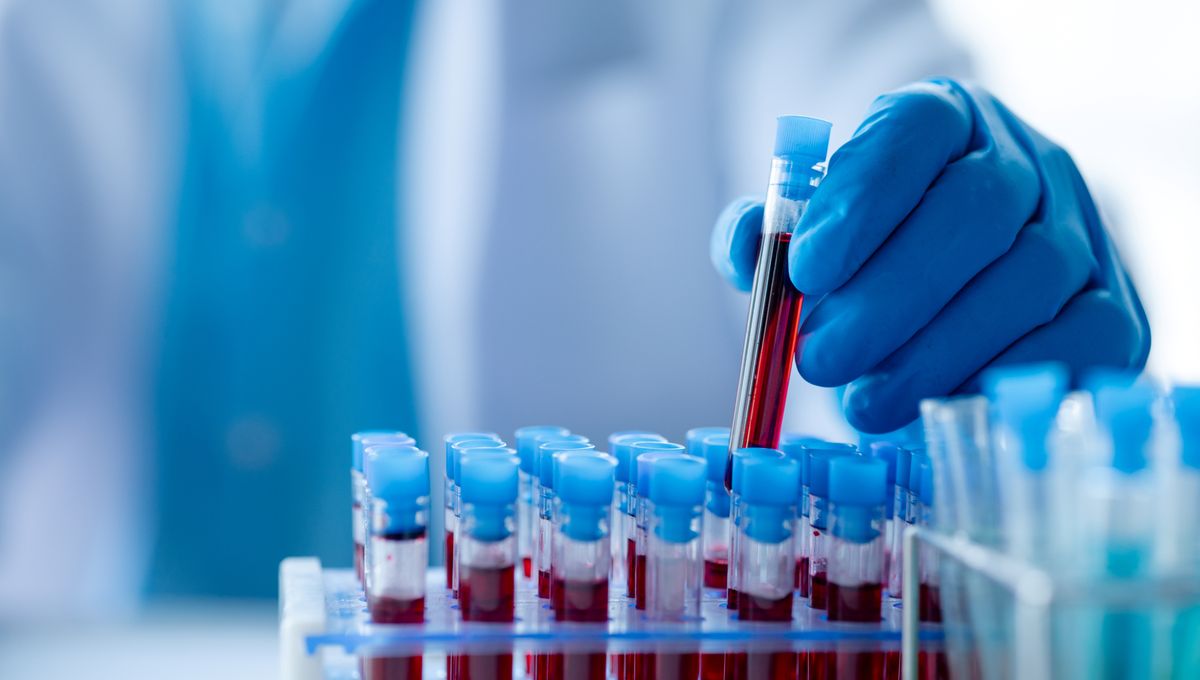
Scientists researching myalgic encephalomyelitis, also known as chronic fatigue syndrome (ME/CFS), have claimed to have developed the first-ever blood test for the condition.
ME/CFS is a debilitating, long-term illness that can cause people to experience extreme fatigue, sleep problems, difficulty thinking, and a worsening of their symptoms after any type of activity. It’s thought to affect up to 3.3 million people in the US – and yet scientists know surprisingly little about it, which has also made it difficult to reliably test for and diagnose, leading many people to report that they are not believed upon seeking help.
“We know that some patients report being ignored or even told that their illness is ‘all in their head. With no definitive tests, many patients have gone undiagnosed or misdiagnosed for years,” said lead researcher Professor Dmitry Pshezhetskiy in a statement. “We wanted to see if we could develop a blood test to diagnose the condition – and we did!”
“For the first time, we have a simple blood test that can reliably identify ME/CFS – potentially transforming how we diagnose and manage this complex disease,” said Pshezhetskiy.
Pshezhetskiy and the team used a new tool developed by Oxford BioDynamics to look for differences in how DNA molecules are folded in the blood of 47 people with ME/CFS compared to 61 healthy people part of a control group.
In doing so, they identified a pattern of DNA folds that the researchers say appears to be unique to people with ME/CFS, and as such, could be used as a test for the disease, one that they claim shows 98 percent specificity.
“Our discovery offers the potential for a simple, accurate blood test to help confirm a diagnosis, which could lead to earlier support and more effective management,” said Pshezhetskiy.
But experts not involved with the study have urged caution in interpreting its findings, highlighting flaws in the study’s design.
“There are some details about the way the study was carried out that seem unusual to me, and that in my view may have introduced some biases and limit how far the findings can be generalised beyond the groups of people directly involved,” Professor Kevin McConway, Emeritus Professor of Applied Statistics at The Open University, told the Science Media Centre.
“It can’t tell us about how the test might perform in telling people with ME/CFS from people with other chronic diseases that involve inflammation, for instance. The researchers point this out, and until we know whether or not the test can make this distinction, it can’t be used to decide what treatment such patients should have,” he continued.
“I think the study does establish that the approach is potentially useful,” Conway added, but that the authors are “rightly careful not to claim that the research already offers such a test.”
It’s a sentiment echoed by Professor Chris Ponting, Chair of Medical Bioinformatics at the University of Edinburgh, who said that claims of such a test are “premature”.
“This is because results could be confounded in three ways: by (1) Sex and/or by age: sex- and age-matching was not done (beyond matching age criterion of 20-80 years old); (2) Batch: all cases were from the CureME Biobank, whereas most (41 of 61) controls came from the company’s own biobank; and, (3) Inactivity and severity: all cases had severe symptoms and were house-bound, whereas all controls were healthy and likely physically active,” Ponting explained.
“This test needs to be fully validated in better designed and independent studies before it is considered for clinical application. Even if validated, the test will be expensive, likely ~ £1,000,” he added.
The study is published in the Journal of Translational Medicine.
Source Link: New Blood Test Offers Potential For “Simple, Accurate” ME/CFS Diagnosis, Researchers Claim – Other Experts Aren’t So Sure